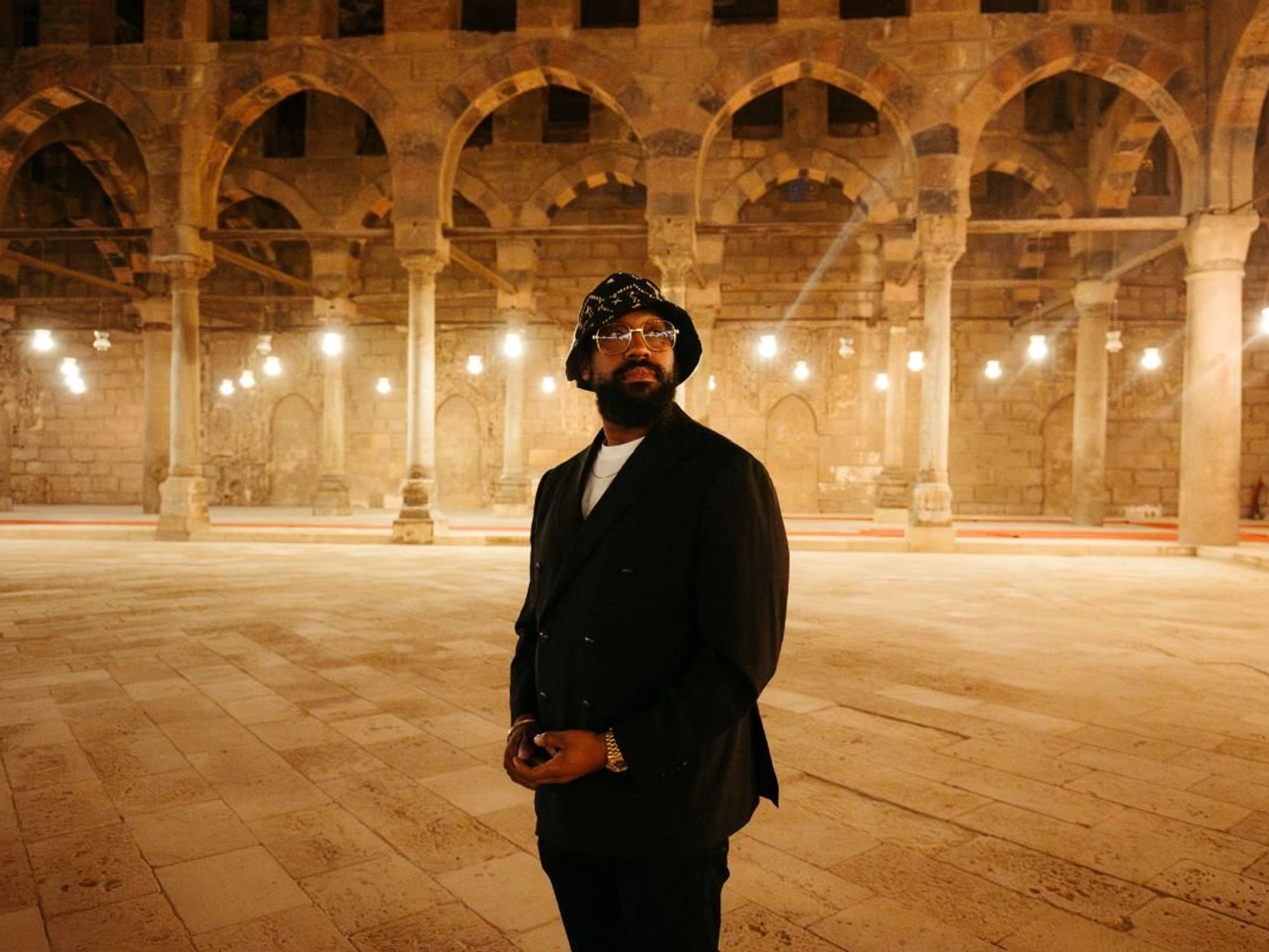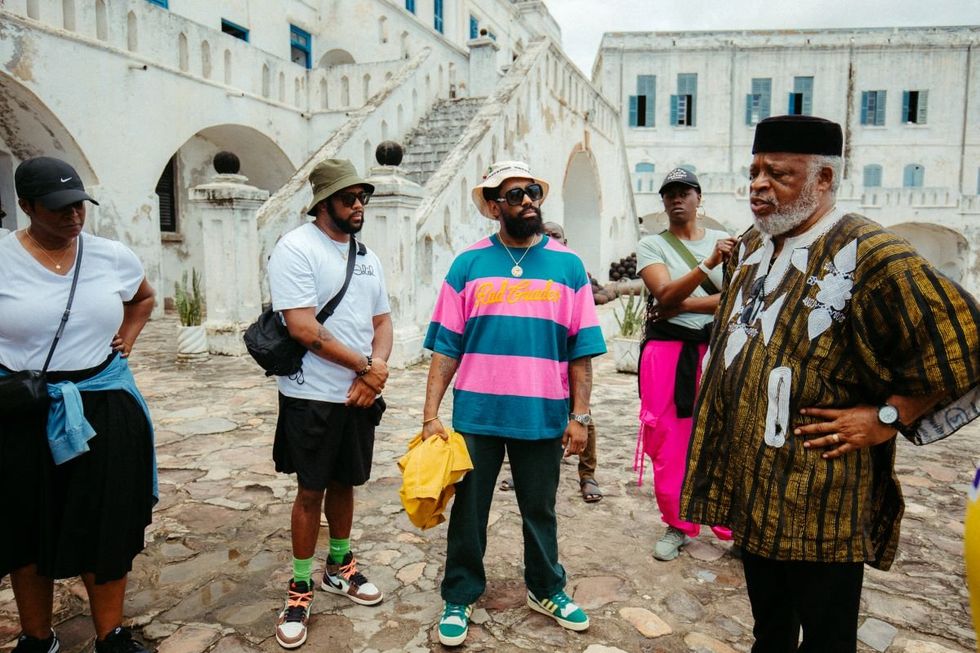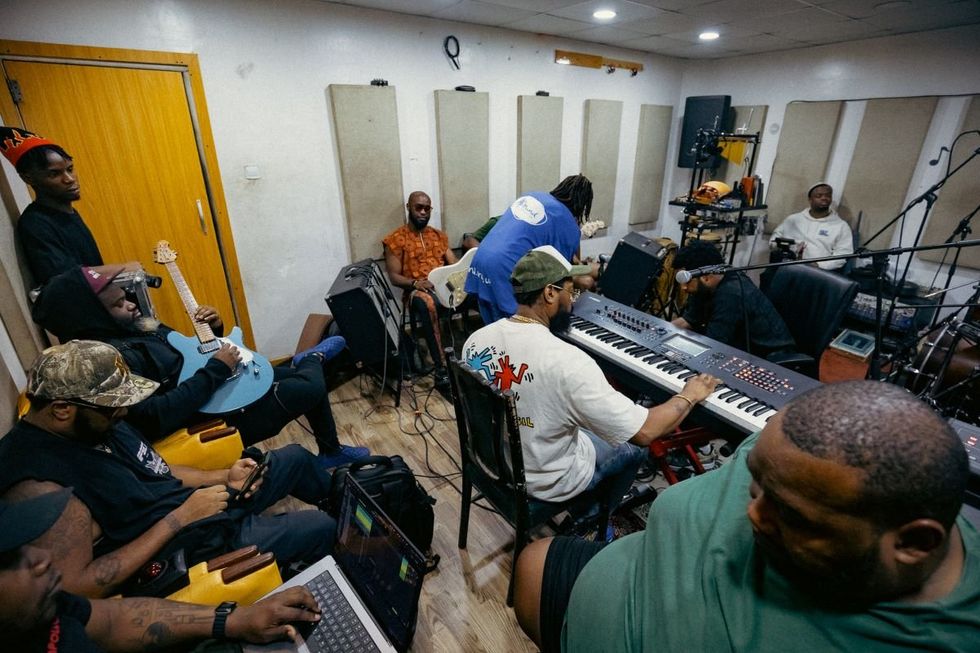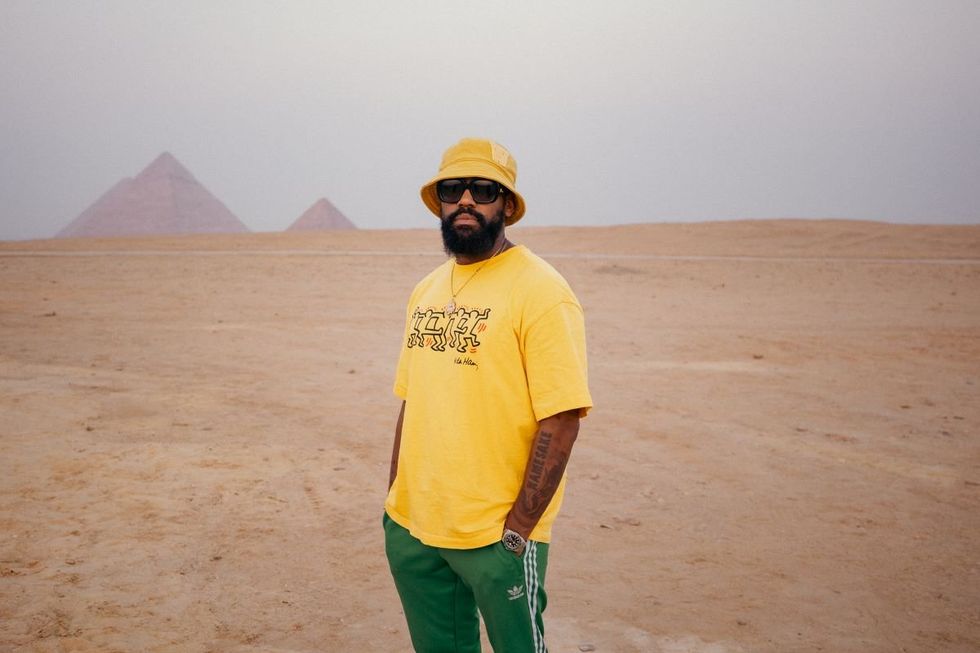
PJ Morton, a versatile artist with numerous Grammy wins, has made significant contributions to various genres within African American music. Over his twenty-year career, he has delved into pop, R&B, funk, and gospel, continually reinventing himself. His latest album, Cape Town to Cairo, is a testament to Morton’s innovative genre-blending and collaborative spirit.
In this piece, Morton discusses the album’s journey, from its inception to the creation of its nine tracks, with excerpts edited for brevity and clarity.

PJ Morton: Cape Town to Cairo is a project that evolved during a 30-day journey across Africa, from Cape Town and Johannesburg in South Africa to Lagos, Nigeria, Accra, Ghana, Cairo, Egypt, and back to South Africa. It was an attempt to capture the essence of being on the continent by refraining from writing or recording before or after the trip, allowing for a raw and instinctual creative process.
The album showcases a blend of R&B, soul, gospel, pop, and jazz, infused with African inspiration. With limited time and no genre constraints, the essence of the music is rooted in the African experience, presenting itself as a musical expression of the diaspora.
“Smoke & Mirrors”
During a visit to Lagos, Nigeria, coinciding with Fela Kuti’s birthday, Morton was inspired by the energy of Felabration and channeled that spirit into the creation of this track. Reflecting on his journey in the music industry, the song juxtaposes perceptions with reality, embodying Fela’s revolutionary zeal. The addition of New Orleans horns further connects African and American musical roots.

“Count On Me” feat. Fireboy DML
Written in Cape Town, South Africa, this track reflects Morton’s desire to convey a message of positivity and friendship. Collaborating with Fireboy DML, the song’s uplifting essence was captured spontaneously, emphasizing the power of creative camaraderie.
“Please Be Good”
Conceived on his first day in a Nigerian studio, “Please Be Good” aims to transport listeners to a tranquil space, offering a musical escape. With producer P. Priime’s collaboration, Morton crafted a serene vibe to set the tone for the album.
“Who You Are” feat. Mádé Kuti
Influenced by highlife music, this track explores themes of self-identity and ancestral connections. Morton’s time in Africa heightened his awareness of cultural heritage, culminating in a reflective piece that embodies resilience and acknowledgment of roots.
“Thank You”
Drawing from a sense of gratitude during his African journey, Morton crafted “Thank You” as an expression of appreciation. Collaborating with South African producer Xivonaki Manzini, the track serves as a melodic backdrop to convey heartfelt thanks.
“I Found You”
Unveiling a longtime idea during his African sojourn, “I Found You” evolved in Cairo, Egypt, evoking a romantic and celebratory vibe. With strings added in New Orleans, the track embodies love and joy, resonating as a soulful ode to connection.

“All The Dreamers” feat. Asa & Ndabo Zulu
Enveloped by inspiration, Morton transformed a vocal sample into a narrative of aspiration and triumph. Collaborating with Asa and Ndabo Zulu, the track embodies the spirit of resilience and achievement, resonating with Afro-Cuban influences, symbolizing unity in diversity.
“Home Again”
Closing his African journey in Lagos, Morton connected with The Cavemen, crafting “Home Again” as a serendipitous collaboration. Reflecting on a sense of belonging and familiarity, the track encapsulates a feeling of homecoming, bridging musical and cultural landscapes.

“Simunye (We Are One)” feat. Soweto Spiritual Singers
Conceived in Cape Town, South Africa, and inspired by unity amidst historical struggles, “Simunye (We Are One)” serves as an anthemic testament to collective pride and strength. Rooted in African heritage, the track captures a spirit of resilience and solidarity.



Comment